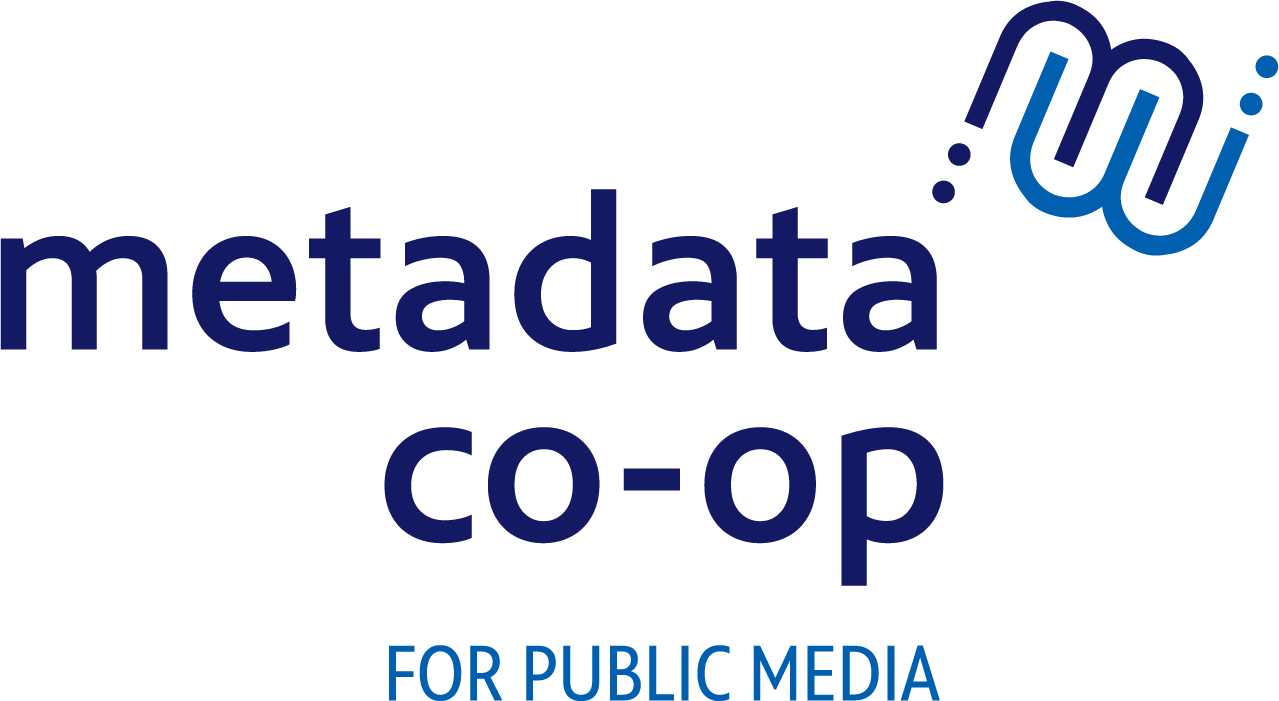Something is going on in the Media & Entertainment (M&E) industry. News strategists are calling for writers and editors to start tagging their content as they write it. Photographers are being asked to use cameras that automatically capture time, location, and other details as photos are taken. A big campaign is ongoing now to get music producers to capture songwriting and production credits as songs are recorded. Authors must now enter dozens of fields of data into online portals, before they've finished editing their book. Film crews are using software to digitize clapboard details with each take, and TV producers are being asked to submit basic information about each production in various online registries—while the work is still in pre-production.
Helping audiences discover and connect with content has always required information about the content: details such as title, genre, release date, publisher, distributor, etc.—information otherwise known as metadata. Today, it's even more critical, since audiences cannot discover content in a digital world if structured metadata that digital "robots" can read isn't there to lead them to it.
According to a white paper published by Bloomberg, titled "Metadata Matters: How Metadata Can Help Media Companies Succeed," "for any media company that’s producing, curating and distributing large volumes of content, metadata is the foundation that they’re putting in place."
As more and more content gets published online in multiple formats, to multiple devices, and on multiple platforms, content discovery—or the ability of audiences to serendipitously encounter public media content in a frictionless way—gets much, much harder. Which is why, industry-wide, the push is on to get the metadata flowing much sooner and in a much more structured, industry-standard way.
These are, in fact, the reasons the PBS Metadata Co-op for Content Discovery was created, and why you, as public media producers, are hearing so much lately about metadata. And though every team at your organization needs to play a role in “feeding the robots” that connect audiences to our programming, public media (like every other M&E sector) is particularly focused on asking content creators, specifically, to get involved in your organization’s metadata strategy. Here are three reasons why public media producers need to get involved in creating program metadata:
1. The Technology Team Can’t Solve This.
Yes, Nadia on the IT team is an absolute genius—but does she know that the interview with Elon Musk initially promoted as a segment of your documentary got left on the editing room floor, and that his name had better come out of the credits and get removed from all of the listings and databases where it appears, both internally and externally, pronto? She does not. Nor could she have anticipated this turn of events and strategically withheld certain metadata details to prevent this very scenario from happening.
Although "metadata" sounds like one of those words that has to be something the technology team can deal with, it isn't. For your content to reach audiences, you've got to have a hand in generating the DNA.
2. Metadata is the DNA, the Strategy, the Operating Instructions for Your Content Out in the World.
Even the title you give your content could hamper its ability to be found or discovered in a digital world. (Parents know what not to name their children, and the same should be true for your show!) The wrong title may not mean harassment on the playground, but it could mean invisibility. Very long titles, for example, can hurt discoverability in some situations (when it gets truncated in Electronic Program Guides due to character limits, for example), while overly short or generic titles can result in poor search engine results (try searching for “Country Music” without including the words “Ken Burns." Note that this doesn't mean "Country Music" is a bad title, it just means that the metadata will need to be deployed strategically to make it more discoverable, and everyone will need to be aware of this from the start.)
Or how do you deal with the fact that some platforms search only against Series and not Episode titles—that’s tricky when, as with Austin City Limits, you want to highlight the specific vocal artist in each episode. How do you handle series within a bigger series, or franchise—is Masterpiece the series or Poldark? Without a fundamental understanding of how the robots will interpret your metadata, and how you can work around necessary constraints, you are setting your content up to be invisible. You could easily choose a less-than-optimum title or structure your metadata in a way that makes it hard for audiences to discover your content.
That doesn't mean you have to get a degree in metadata, or that it's all on you—everyone at your organization will play a role, and frankly, it's a heavier lift further down the metadata lifecycle. But as producers, you absolutely do need to know just enough to be strategic with the registration, curation and initial release of program information, because you're where it all begins. (And the PBS Metadata Co-op is here to help. We've created a webinar just for you—see details at the bottom of this story).
3. Nobody Knows or Cares About the Content Like Its Creator.
The earlier the metadata highway between audience and content gets built, the stronger content discovery will be—whereas if you’re just depending on those who publish Program Listings (much later in the publication lifecycle), you’re doing too little, too late. Besides which, program listings don’t cover all of your content discovery bases—you must also consider how metadata works on websites, in open databases such as Wikipedia and IMDb, and on partner platforms. Only producers can provide that foundational set of key metadata elements as soon as they are decided—or know to sound the alarm to correct and update them when details change.
If you haven’t already, you’ll also hear more about the need for producers to register their content in the months ahead—a unique identifier that distinguishes your show from every other program out there, now and in the future, much as ISBNs do for books. And those need to happen early—much as a baby gets a Social Security Number before it leaves the hospital. (While waiting until they leave for college would be too late.)
So, how do you get started?
If you’re a public media producer, start by learning about how metadata connects audiences to your program and what the best practices are for producers to help ensure content discovery. We’ve designed the following resources to help, and more tools and resources are being released each month.
- Webinars: Start with the Metadata Co-op's Metadata 101 webinar and then check out Content Discovery for Content Creators. See the list of all available webinars, days and times at metadata.pbs.org/training
- Visit metadata.pbs.org to get started on your Metadata for Content Discovery strategy.
Sources:
- Bloomberg White Paper, "Metadata Matters: How Metadata Can Help Media Companies Succeed" - http://www.truevaluemetrics.org/DBpdfs/Media/Bloomberg/Media-Bloomberg-Metadata-Whitepaper.pdf | Although created to promote Bloomberg Media's content creation services, this whitepaper is a useful introduction to metadata for content creators across the M&E industry.






